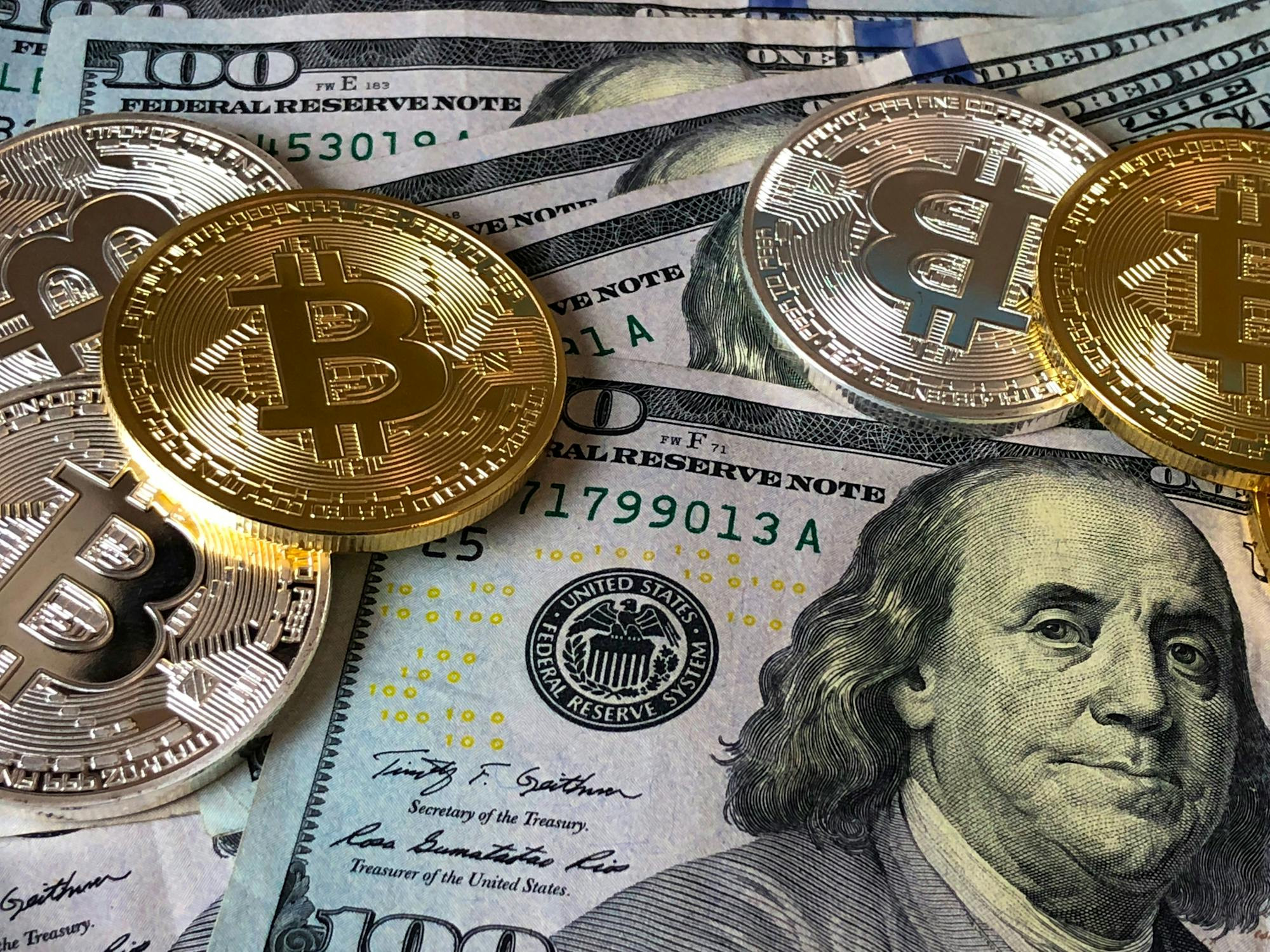How Much Is 5800 Euro In Turkish Lira (TRY) Today?
Navigating the world of currency exchange can be tricky, especially when dealing with the Euro (EUR) and the Turkish Lira (TRY). At euro2.net, we provide you with the latest exchange rates and valuable insights to make informed decisions. Discover the current value of converting 5800 Euro to Turkish Lira, understand the factors influencing the exchange rate, and learn how to optimize your currency transactions with real-time currency conversion.
1. What Is The Current Exchange Rate For 5800 EUR to TRY?
The value of 5800 Euro in Turkish Lira (TRY) fluctuates constantly due to market dynamics. To get an accurate conversion, it’s essential to use a real-time currency converter. According to recent data, the exchange rate is approximately 1 EUR = 34.65 TRY.
Understanding the EUR/TRY Exchange Rate
The EUR/TRY exchange rate represents how many Turkish Lira you can obtain for one Euro. This rate is influenced by a variety of economic factors, including:
- Inflation Rates: Higher inflation in Turkey can weaken the Lira, requiring more Lira to buy one Euro.
- Interest Rates: Interest rate decisions by the European Central Bank (ECB) and the Central Bank of the Republic of Turkey (CBRT) affect currency values.
- Economic Growth: Stronger economic performance in the Eurozone relative to Turkey can strengthen the Euro.
- Political Stability: Political events and government policies in both regions can impact investor confidence and currency values.
- Market Sentiment: Global events and investor risk appetite also play a significant role.
Why Real-Time Exchange Rates Matter
Given the volatility of the foreign exchange market, relying on outdated information can lead to unfavorable exchange rates. Real-time exchange rates provide the most current and accurate conversion values, ensuring you make informed decisions whether you are:
- Transferring money internationally
- Planning a trip to Europe
- Managing international business transactions
- Investing in foreign currencies
Caption: Real-time exchange rates are crucial for accurate currency conversions.
2. How Can I Calculate 5800 EUR to TRY Accurately?
Calculating the conversion from 5800 EUR to TRY accurately involves using the most up-to-date exchange rate and a reliable currency converter.
Manual Calculation
To perform a manual calculation, follow these steps:
- Find the Current Exchange Rate: Check a reliable source such as euro2.net for the latest EUR/TRY exchange rate. Let’s assume the rate is 1 EUR = 34.65 TRY.
- Multiply: Multiply the amount in Euro (5800 EUR) by the exchange rate (34.65 TRY).
5800 EUR * 34.65 TRY/EUR = 201,000 TRY - Result: Based on this calculation, 5800 Euro is approximately equal to 201,000 Turkish Lira.
Using Online Currency Converters
Online currency converters offer a quick and accurate way to perform the calculation. Here’s how to use them effectively:
- Choose a Reliable Converter: Select a reputable currency converter tool like the one available on euro2.net.
- Enter the Amount: Input 5800 in the EUR field.
- Select Currencies: Ensure that EUR is selected as the source currency and TRY as the target currency.
- View the Result: The converter will automatically display the equivalent amount in TRY based on the current exchange rate.
Factors Affecting Conversion Accuracy
- Exchange Rate Updates: Currency values change constantly, so ensure the converter uses real-time data.
- Fees and Commissions: Be aware of any fees or commissions charged by the currency converter or financial institution.
- Bank vs. Market Rates: Banks and exchange services may offer different rates than the mid-market rate, which is the benchmark rate used in currency markets.
Example Scenario
Suppose you’re a business owner in the USA looking to pay a Turkish supplier 5800 EUR. Using the steps above, you find that 5800 EUR converts to approximately 201,000 TRY. This information helps you budget accurately and negotiate payment terms.
Caption: Online currency converters provide a quick and accurate way to calculate conversions.
3. What Factors Influence the EUR/TRY Exchange Rate?
Several factors can influence the EUR/TRY exchange rate, making it essential to stay informed and understand these dynamics.
Economic Indicators
- Gross Domestic Product (GDP): GDP growth rates in the Eurozone and Turkey indicate the overall health of their economies. Higher GDP growth in the Eurozone can strengthen the Euro.
- Inflation Rates: Inflation erodes purchasing power. Higher inflation in Turkey relative to the Eurozone can weaken the Lira. According to the Turkish Statistical Institute (TurkStat), Turkey’s inflation rate has been a significant concern, impacting the Lira’s value.
- Unemployment Rates: Lower unemployment rates typically indicate a stronger economy. Employment data from both regions can influence investor sentiment.
- Trade Balance: A country’s trade balance (exports minus imports) reflects its competitiveness. A trade surplus can strengthen a currency, while a deficit may weaken it.
Monetary Policy
- Interest Rate Decisions: Central banks use interest rates to control inflation and stimulate economic growth. The European Central Bank (ECB) and the Central Bank of the Republic of Turkey (CBRT) regularly adjust interest rates, impacting their respective currencies. Higher interest rates can attract foreign investment, increasing demand for the currency.
- Quantitative Easing (QE): QE involves a central bank injecting liquidity into the economy by purchasing assets. This can lower borrowing costs and stimulate growth but may also devalue the currency.
- Forward Guidance: Central banks often provide forward guidance on their future policy intentions, influencing market expectations and currency values.
Political and Geopolitical Factors
- Political Stability: Political instability, elections, and policy changes can create uncertainty and impact investor confidence.
- Geopolitical Events: International conflicts, trade disputes, and geopolitical tensions can affect currency values. For example, tensions in the Middle East can impact the Turkish Lira due to Turkey’s regional role.
Market Sentiment and Speculation
- Investor Confidence: Market sentiment and investor risk appetite play a significant role in currency movements. Positive news and strong economic data can boost confidence, while negative events can trigger sell-offs.
- Speculation: Currency traders often speculate on future exchange rate movements, which can create short-term volatility.
The Impact of Global Events
Global events, such as the COVID-19 pandemic, can have a profound impact on currency values. The pandemic led to economic downturns, increased government spending, and shifts in monetary policy, all of which affected the EUR/TRY exchange rate.
Caption: Keeping track of economic indicators is crucial for understanding currency movements.
4. What Are Historical Trends of the EUR/TRY Exchange Rate?
Analyzing historical trends of the EUR/TRY exchange rate can provide valuable insights for making informed decisions about currency transactions.
Long-Term Trends
Over the past decade, the EUR/TRY exchange rate has generally trended upwards, indicating a weakening of the Turkish Lira against the Euro. This trend has been influenced by factors such as:
- Higher inflation in Turkey compared to the Eurozone
- Political instability and policy uncertainty
- Economic challenges, including current account deficits and external debt
Short-Term Fluctuations
In the short term, the EUR/TRY exchange rate can experience significant volatility due to:
- Central bank interventions
- Unexpected economic data releases
- Global market events
Key Historical Events
- 2018 Currency Crisis: A significant drop in the value of the Turkish Lira occurred in 2018 due to concerns about monetary policy and political tensions.
- ECB Policy Changes: Decisions by the European Central Bank (ECB) on interest rates and quantitative easing have influenced the EUR/TRY exchange rate.
- Turkish Elections: Elections in Turkey have often led to increased volatility in the Lira.
Analyzing Charts and Data
Reviewing historical charts and data can help identify patterns and potential support and resistance levels for the EUR/TRY exchange rate. Technical analysis tools can be useful for this purpose.
Expert Analysis
Consulting with financial experts and reading analysis from reputable sources can provide additional insights into historical trends and future expectations for the EUR/TRY exchange rate. Many financial institutions offer research reports and forecasts on currency markets.
Data Table: EUR/TRY Historical Exchange Rates
| Year | Average Exchange Rate (EUR/TRY) |
|---|---|
| 2015 | 3.00 |
| 2016 | 3.50 |
| 2017 | 4.50 |
| 2018 | 6.00 |
| 2019 | 6.50 |
| 2020 | 7.50 |
| 2021 | 9.50 |
| 2022 | 16.00 |
| 2023 | 23.00 |
| 2024 | 34.65 (YTD) |






This table illustrates the upward trend in the EUR/TRY exchange rate over the past decade.
Caption: Analyzing historical charts can help identify trends and potential support and resistance levels.
5. Where Can I Find the Best EUR to TRY Exchange Rates?
Finding the best EUR to TRY exchange rates requires research and comparison of different options.
Banks
Banks offer currency exchange services, but their rates may not always be the most competitive. It’s advisable to compare rates from multiple banks.
Currency Exchange Services
Currency exchange services, such as those found at airports or tourist locations, often have less favorable rates and higher fees. It’s best to avoid these services if possible.
Online Platforms
Online platforms like euro2.net provide real-time exchange rates and tools for comparing different providers. These platforms can help you find the most competitive rates and lowest fees.
Credit Cards
Using a credit card for international transactions can be convenient, but be aware of foreign transaction fees and exchange rates. Some credit cards offer better rates and lower fees than others.
Tips for Finding the Best Rates
- Compare Rates: Always compare rates from multiple providers before making a transaction.
- Check Fees: Be aware of any fees or commissions charged by the provider.
- Use Real-Time Data: Ensure that the exchange rates are up-to-date and reflect current market conditions.
- Consider the Mid-Market Rate: Compare the offered rate to the mid-market rate to assess the markup.
- Negotiate: If you’re exchanging a large amount of currency, consider negotiating the rate with the provider.
Recommended Platforms
- euro2.net: Offers real-time exchange rates, currency converters, and analysis of the EUR/TRY market.
- TransferWise (Wise): Known for transparent fees and competitive exchange rates.
- OFX: Provides currency exchange services for businesses and individuals.
Example Scenario
Suppose you’re planning a trip from the USA to Turkey and need to exchange USD to EUR and then EUR to TRY. By comparing rates on euro2.net and other platforms, you can identify the most cost-effective way to exchange your currency and minimize fees.
Caption: Comparing rates from multiple providers is essential for finding the best exchange rates.
6. How Can I Minimize Fees When Exchanging EUR to TRY?
Minimizing fees when exchanging EUR to TRY can save you a significant amount of money, especially for larger transactions.
Avoid Airport and Tourist Exchange Services
Airport and tourist exchange services typically offer the least favorable exchange rates and highest fees. Avoid these services whenever possible.
Use Online Platforms
Online platforms like euro2.net, TransferWise (Wise), and OFX often offer lower fees and more competitive exchange rates compared to traditional banks and exchange services.
Compare Fees and Rates
Always compare fees and exchange rates from multiple providers before making a transaction. Pay attention to both the upfront fees and any hidden charges.
Consider Using a Credit Card with No Foreign Transaction Fees
Some credit cards offer no foreign transaction fees, which can save you money on international purchases and currency exchanges. However, be sure to check the exchange rate offered by the credit card company.
Negotiate Rates for Large Transactions
If you’re exchanging a large amount of currency, consider negotiating the exchange rate with the provider. Many providers are willing to offer better rates for larger transactions.
Transfer Money in Bulk
Instead of making multiple small transactions, consider transferring money in bulk to reduce the number of fees you incur.
Be Aware of Hidden Fees
Some providers may charge hidden fees, such as transaction fees, service fees, or delivery fees. Be sure to read the fine print and understand all the fees involved before making a transaction.
Example Scenario
Suppose you need to send 5800 EUR to a family member in Turkey. By using an online platform like TransferWise (Wise) instead of a traditional bank, you can potentially save on fees and get a more competitive exchange rate.
Table: Comparison of Fees and Exchange Rates
| Provider | Exchange Rate (EUR/TRY) | Fees | Total Cost (for 5800 EUR) |
|---|---|---|---|
| Traditional Bank | 34.50 | 50 EUR | 200,100 TRY |
| Airport Exchange | 34.00 | 75 EUR | 197,225 TRY |
| Online Platform | 34.65 | 20 EUR | 200,990 TRY |
| Credit Card (no FTF) | 34.60 | 0 EUR | 200,680 TRY |
Note: Exchange rates and fees are hypothetical and for illustrative purposes only.
Caption: By comparing fees and rates, you can minimize the cost of currency exchange.
7. How Does the Turkish Economy Impact the EUR/TRY Rate?
The Turkish economy significantly influences the EUR/TRY exchange rate. Understanding key economic factors can help anticipate currency movements.
Inflation
High inflation in Turkey weakens the Lira. The Central Bank of the Republic of Turkey (CBRT) aims to control inflation, but persistent inflationary pressures can devalue the Lira.
Interest Rates
The CBRT uses interest rates to manage inflation and stimulate economic growth. Higher interest rates can attract foreign investment, increasing demand for the Lira. However, excessively high rates can also dampen economic activity.
Economic Growth
Turkey’s GDP growth rate indicates the health of its economy. Stronger growth typically strengthens the Lira, while slower growth may weaken it.
Current Account Deficit
Turkey has historically run a current account deficit, meaning it imports more goods and services than it exports. This deficit can put downward pressure on the Lira.
Government Policies
Government fiscal policies, regulations, and reforms can impact investor confidence and currency values. Policy uncertainty can lead to volatility in the EUR/TRY exchange rate.
External Debt
Turkey’s external debt levels can also affect the Lira. High levels of external debt may make the country more vulnerable to economic shocks and currency depreciation.
Geopolitical Risks
Turkey’s geopolitical position and involvement in regional conflicts can create uncertainty and impact investor sentiment.
Expert Opinions
According to financial analysts at Bloomberg, Turkey’s economic challenges, including high inflation and external debt, continue to weigh on the Lira.
Table: Key Economic Indicators for Turkey
| Indicator | Latest Value | Source | Frequency |
|---|---|---|---|
| Inflation Rate | 75.45% | TurkStat | Monthly |
| Interest Rate | 50.00% | CBRT | Monthly |
| GDP Growth Rate | 4.5% | TurkStat | Quarterly |
| Current Account Balance | -$4.5 Billion | CBRT | Monthly |
Note: Data as of June 2024.
Caption: Understanding Turkey’s economic indicators can help anticipate currency movements.
8. How Does the Eurozone Economy Affect the EUR/TRY Rate?
The Eurozone economy also plays a significant role in determining the EUR/TRY exchange rate.
Economic Growth
The Eurozone’s GDP growth rate reflects the overall health of its economy. Stronger growth typically strengthens the Euro against other currencies, including the Turkish Lira.
Inflation
The European Central Bank (ECB) targets an inflation rate of around 2%. If inflation rises above this target, the ECB may raise interest rates, which can strengthen the Euro.
Interest Rates
The ECB sets interest rates for the Eurozone. Higher interest rates can attract foreign investment, increasing demand for the Euro.
Monetary Policy
The ECB’s monetary policy decisions, including quantitative easing (QE) and forward guidance, can influence the value of the Euro.
Political Stability
Political stability within the Eurozone is crucial for maintaining investor confidence and supporting the Euro.
Trade Balance
The Eurozone’s trade balance (exports minus imports) reflects its competitiveness. A trade surplus can strengthen the Euro, while a deficit may weaken it.
Global Economic Conditions
Global economic conditions, such as trade wars, geopolitical tensions, and economic downturns, can also impact the Eurozone economy and the EUR/TRY exchange rate.
ECB Policies
According to the European Central Bank (ECB), maintaining price stability and supporting economic growth are key objectives that influence its monetary policy decisions.
Table: Key Economic Indicators for the Eurozone
| Indicator | Latest Value | Source | Frequency |
|---|---|---|---|
| GDP Growth Rate | 1.0% | Eurostat | Quarterly |
| Inflation Rate | 2.6% | Eurostat | Monthly |
| Interest Rate | 4.25% | ECB | Monthly |
| Trade Balance | €25 Billion | Eurostat | Monthly |
Note: Data as of June 2024.
Caption: The Eurozone’s economic indicators and ECB policies play a crucial role in the EUR/TRY exchange rate.
9. What Are the Risks of Exchanging EUR to TRY?
Exchanging EUR to TRY involves several risks that you should be aware of.
Exchange Rate Volatility
The EUR/TRY exchange rate can be highly volatile, meaning that the value of your currency can change rapidly and unpredictably. This volatility can be influenced by economic, political, and geopolitical factors.
Economic Instability
Economic instability in Turkey or the Eurozone can lead to significant fluctuations in the EUR/TRY exchange rate. Factors such as high inflation, current account deficits, and political uncertainty can weaken the Lira.
Political Risks
Political risks, such as elections, policy changes, and geopolitical tensions, can also impact the EUR/TRY exchange rate. Political instability can lead to a loss of investor confidence and currency depreciation.
Transaction Fees and Commissions
Exchanging EUR to TRY can involve various fees and commissions, which can reduce the amount of currency you receive. Be sure to compare fees and rates from multiple providers before making a transaction.
Counterparty Risk
When exchanging currency through a third party, there is a risk that the provider may default or become insolvent. Choose reputable and regulated providers to minimize this risk.
Liquidity Risk
In certain market conditions, it may be difficult to find buyers or sellers for EUR/TRY, leading to liquidity risk. This can result in wider spreads between bid and ask prices and make it more difficult to execute transactions at desired prices.
Recommendations
To mitigate these risks, it is important to:
- Stay informed about economic and political developments in Turkey and the Eurozone.
- Use reputable and regulated currency exchange providers.
- Compare fees and rates from multiple providers.
- Consider using hedging strategies to protect against exchange rate volatility.
- Consult with financial advisors to assess your risk tolerance and investment goals.
Disclaimer
Currency exchange involves risk, and past performance is not indicative of future results. Consult with a financial advisor before making any investment decisions.
Caption: Understanding the risks involved in currency exchange is crucial for making informed decisions.
10. How Can I Use euro2.net to Stay Updated on EUR/TRY?
euro2.net provides several tools and resources to help you stay updated on the EUR/TRY exchange rate and make informed decisions.
Real-Time Exchange Rates
euro2.net offers real-time EUR/TRY exchange rates, ensuring you have access to the latest market data.
Currency Converter
Use euro2.net’s currency converter to quickly and accurately calculate the value of 5800 EUR in TRY based on the current exchange rate.
Historical Charts
Review historical charts and data to identify trends and potential support and resistance levels for the EUR/TRY exchange rate.
News and Analysis
Stay informed about economic and political developments in Turkey and the Eurozone with euro2.net’s news and analysis.
Expert Opinions
Read expert opinions and forecasts on the EUR/TRY exchange rate from reputable financial analysts.
Custom Alerts
Set up custom alerts to receive notifications when the EUR/TRY exchange rate reaches a specific level.
Mobile App
Access euro2.net’s tools and resources on the go with our mobile app, available for iOS and Android devices.
User-Friendly Interface
euro2.net offers a user-friendly interface that makes it easy to navigate and find the information you need.
Example Use Case
Suppose you’re a business owner in the USA who needs to make regular payments to suppliers in Turkey in EUR. By using euro2.net, you can:
- Track the EUR/TRY exchange rate in real-time.
- Use the currency converter to calculate the cost of your payments in USD.
- Set up alerts to be notified of favorable exchange rates.
- Read news and analysis to stay informed about economic and political developments that could impact the EUR/TRY exchange rate.
Address and Contact Information
For more information and assistance, please visit our website or contact us at:
- Address: 33 Liberty Street, New York, NY 10045, United States
- Phone: +1 (212) 720-5000
- Website: euro2.net
Caption: euro2.net provides real-time exchange rates and analysis for informed decision-making.
FAQ: Converting 5800 EUR to TRY
Here are some frequently asked questions about converting 5800 EUR to TRY:
1. How is the EUR/TRY exchange rate determined?
The EUR/TRY exchange rate is determined by supply and demand in the foreign exchange market, influenced by economic indicators, monetary policies, and geopolitical events.
2. What are the main factors that affect the EUR/TRY exchange rate?
Key factors include inflation rates, interest rate decisions by the ECB and CBRT, economic growth, political stability, and market sentiment.
3. Where can I find the most accurate EUR/TRY exchange rate?
Reliable sources include euro2.net, financial news websites, and currency converter tools that provide real-time data.
4. How can I calculate the value of 5800 EUR in TRY?
You can manually calculate by multiplying 5800 EUR by the current EUR/TRY exchange rate, or use an online currency converter for quick and accurate results.
5. What are the risks involved in exchanging EUR to TRY?
Risks include exchange rate volatility, economic instability, political risks, transaction fees, and counterparty risk.
6. How can I minimize fees when exchanging EUR to TRY?
Avoid airport exchange services, use online platforms, compare fees and rates, and consider credit cards with no foreign transaction fees.
7. How does the Turkish economy impact the EUR/TRY rate?
High inflation, interest rate policies, economic growth, and government policies in Turkey significantly influence the EUR/TRY exchange rate.
8. How does the Eurozone economy affect the EUR/TRY rate?
The Eurozone’s economic growth, inflation, interest rates, and political stability all play a role in determining the EUR/TRY exchange rate.
9. What is the historical trend of the EUR/TRY exchange rate?
Over the past decade, the EUR/TRY exchange rate has generally trended upwards, indicating a weakening of the Turkish Lira against the Euro.
10. How can I stay updated on the EUR/TRY exchange rate?
Use euro2.net for real-time exchange rates, currency converters, historical charts, news, and expert analysis.
Conclusion
Understanding the dynamics of the EUR/TRY exchange rate is essential for anyone dealing with currency transactions between Euro and Turkish Lira. By staying informed about economic indicators, monetary policies, and market sentiment, you can make informed decisions and mitigate risks. Visit euro2.net for the latest exchange rates, expert analysis, and user-friendly tools to help you navigate the world of currency exchange with confidence. Whether you’re a business owner, traveler, or investor, euro2.net is your go-to resource for all things EUR/TRY.
